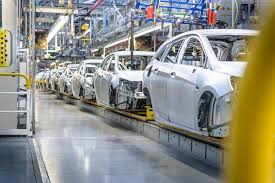
China is intensifying its industrial footprint in Algeria with a bold plan to produce electric vehicles domestically, signaling a new chapter in Sino-Algerian economic collaboration.
The move comes alongside other major Chinese investments, including a $1.6 billion project by Asia Potash International to transform phosphate into high-end products.
In Batna, a new Sino-Algerian factory is being established to assemble electric vehicles capable of traveling between 200 and 350 km per charge.
Local components will be used to reduce production costs, aiming to make electric mobility more accessible across Algeria while positioning the country as a potential export hub for sub-Saharan Africa.
Chinese automotive giants Geely and Chery are also preparing factories in Algeria, each projected to produce tens of thousands of vehicles annually.
This dual strategy seeks not only to develop the domestic market but also to create a regional manufacturing and distribution base for electric mobility.
Despite the ambitious plans, challenges remain. Algeria lacks a dense network of charging stations and specialized maintenance workshops, which could slow the adoption of electric vehicles. Additionally, the reliance on imported batteries drives up production costs, potentially limiting competitiveness.
Experts suggest that state support in the form of subsidies or tax incentives may be necessary to kickstart the industry.
Beyond the automotive sector, China is expanding into renewable energy and large-scale infrastructure projects, cementing the Maghreb as a critical node in its New Silk Road initiative.
Beijing’s investments promise jobs, technology transfers, and access to natural resources, but they also raise questions about long-term economic dependence.
Algeria finds itself at a crossroads: the influx of Chinese capital offers a chance to modernize key industries and boost employment, yet balancing the benefits with national sovereignty and strategic autonomy will be crucial.
If successful, the country could emerge as North Africa’s leading hub for green technology and electric vehicles, shaping the region’s industrial landscape for decades to come.



